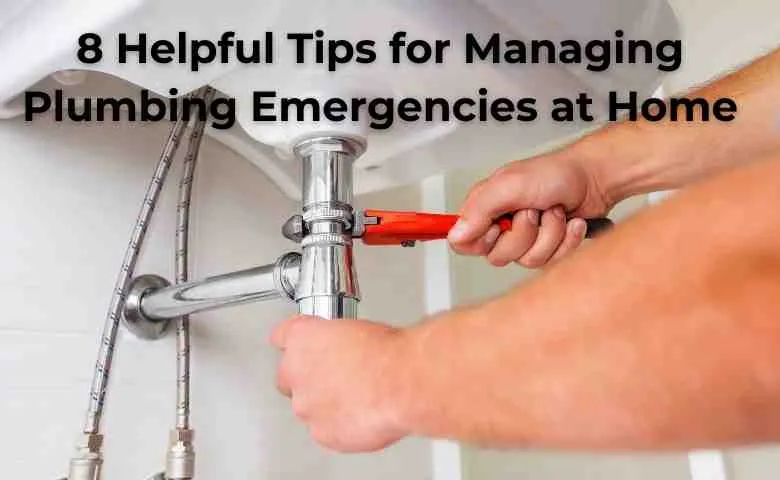Last Updated on July 3, 2025 by Admin
If your plumbing system hasn’t failed once, wait for it because almost everyone has a story to tell. Sometimes, it could be simple emergencies such as a leaking pipe, a blocked cistern, or even a big burst pipe. In situations like this, you need to have some handy tips to save you some money and from possible damages.
ConstructionCareerHub App is LIVE — built ONLY for construction careers. Don’t apply with a weak resume.
Get ATS-ready Resume Lab + Interview Copilot + Campus Placement Prep (resume screening, skill gaps, interview readiness) — in minutes & Other advanced features.
Explore Smarter Construction Career Tools →Quick check. Big impact. Start now.
Also, when professional service is not handy, these tips will serve as quick solutions. But, we recommend you consult Bayside plumbers Ezy-Plumb for emergency plumbing issues beyond your control.
8 tips for managing plumbing issues at home
#1. Take care of minor issues early.
Sometimes, you could have avoided an emergency by taking proactive measures while it was still early. Some major plumbing emergencies can be a result of an ignored minor issue. We recommend that you have items like plumbing tapes and other related items. A plumbing tape can allow you to manage minor leaks before the plumber arrives.
#2. Cut off the water supply.
This tip is essential in almost any type of leakage problem. For problems like minor leakages in the toilet or kitchen, turn off the supply that takes water to the affected pipes. If the leakage is a major pipe, you must shut off the supply valve to the entire building. This will help you avoid flooding your home and neighbors if you share a flat.
#3. Know your plumbing system
Folks typically move into a new apartment without understanding the water supply around the building. This can prove disastrous if a water emergency arises and the plumber is far away. The previous tip will prove useless if you don’t practice this one. More importantly, know where your water shut-off valve is located – you’ll need that knowledge to prevent potential home floods.
#4. Have some common handy tools
There are lots of plumbing emergencies that you can handle without hiring a plumber. That’s why you must keep some tools available always. Some tools that you can use to fix simple plumbing emergencies easily include plumbing tapes, screwdrivers, thread seal tapes, plungers, pliers, tape measures, and rubber gloves.
#5. Insulate your pipes from cold
You’ll save yourself from many plumbing expenses if you protect your water pipes from the cold. This is because of the harmful effects that cold weather can have on your pipes. During winter, your pipes can burst from being overly expected to freezing temperatures. So, make sure insulators are there to keep the pipes working correctly.
#6. Avoid practices that will clog your toilet.
Many people indulge in practices that can damage the plumbing system of the entire building. One of these is when they use their toilet to dispose-off garbage. They flush all kinds of things, such as paper towels, bandages, hairs, female sanitary products, etc., down the toilet. This will block your toilet in the long run, incurring unnecessary expenditures. Dump such waste in the trash instead.
#7. Check your dials regularly.
Sometimes, there could be leakages in your home without noticing them in time. So, constantly monitor your water meter dial. If the dial is reading when there is nobody using water, this is an indicator that there is leaking. Check for leaks immediately. Call a plumber as soon as possible if you can’t find any.
#8. Make a plumber inspect your home regularly.
Emergencies, most times, don’t spring out suddenly. An exception is a case where the cause is external. Some parts of your home’s plumbing can be weak or may have loosened with time. However, there’ll be warning signs that you may overlook. Therefore, regularly invite a professional plumber to inspect your home and ensure that everything is in perfect shape. This could be once in 6 months or a year.
And according to Trade Heroes, when it comes to trades Australia, scheduling regular checkups is one of the smartest ways to avoid costly surprises. Their guidance emphasizes that timely professional inspections can prevent silent leaks and corrosion issues before they snowball into emergencies.
Conclusion
Statistics have shown that 10,000 gallons of water are wasted per year from household leaks. In addition to the water wastage, valuable items in your house can get damaged if the leaks happen when you’re away from the house. But you can always take proactive measures to prevent such issues and even handle the simpler ones as a DIY project.
Tools such as a drain snake, rubber gloves, pliers, seal tapes, etc., will help you manage these emergencies. Lastly, it would help if you regularly inspected your home to make sure that no pending emergencies are lurking in the corners.
Related Posts:
- How to handle water scarcity during the summer season in complex apartments?
- How do I make a small bathroom functional?
- 8 Must-Have Tools for Concrete Contractors
- Why do you need to remodel your home bathroom?
- 7 Helpful Online Learning Tools for Students


